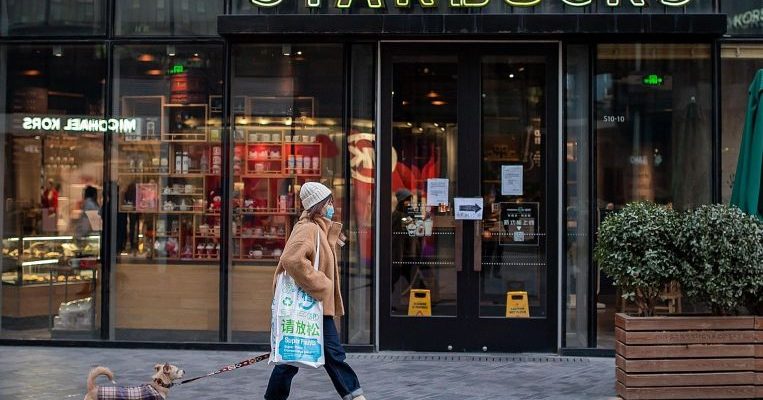
Singapore’s stock market could see more gloom in the first week of this month as the Wuhan coronavirus crisis escalates.
The Straits Times Index fell 0.5 per cent last Friday and ended a week of sell-offs down 2.7 per cent.
Meanwhile, the S&P 500 on Wall Street fell to its lowest level since last October, capping off a week that saw Starbucks and Apple warn about the impact on their performance from the virus outbreak.
The Starbucks earnings release said the coffee-shop chain expects that the virus will “materially affect” its results for the second quarter and the 2020 financial year.
Apple’s earnings guidance range was wider than usual for the next quarter, said reports.
The virus outbreak is also due to affect Singapore-listed firms, with companies here already providing updates on the impact during the quarterly reporting season.
Ascott Residence Trust said at its results briefing last week that it expects a short-term impact on its portfolio, with some cancellations and a decline in bookings already evident.
But the real estate investment trust (Reit) sought to reassure stakeholders that it would be able to ride out the short-term pain with its diversified portfolio.
This week will see earnings releases from the likes of Manulife US Reit on Wednesday and CapitaLand Retail China Trust (CRCT) and Frasers Property on Friday.
CapitaLand said last week that it had shut six malls in China – four in Wuhan and two in Xi’an – while shortening the hours at other malls. One of CapitaLand’s four malls in Wuhan – CapitaMall Minzhongleyuan – is held by CRCT.
CRCT said the remaining 12 malls under its portfolio will continue operating, but with shorter hours.
Bank of Singapore’s head of investment strategy Eli Lee expects more downward pressure on such sectors but added that it is likely still too early to go bargain-hunting for stocks, when the outbreak is in its escalation phase.
But he does suggest that investors position themselves on dips to buy companies that have “firm long-term fundamentals”.
Sectors related to tourism and hospitality have been the most hit, due to reduced consumer demand.
Bank of Singapore’s head of investment strategy Eli Lee expects more downward pressure on such sectors but added that it is likely still too early to go bargain-hunting for stocks, when the outbreak is in its escalation phase.
But he does suggest that investors position themselves on dips to buy companies that have “firm long-term fundamentals”.
On the data front, Singapore’s January Purchasing Managers’ Index (PMI) is out today, and January official reserves numbers on Friday.
China is slated to report January data for the Caixin manufacturing PMI today, and trade and foreign reserves on Friday.
Its stock markets will also reopen this week after an extended Chinese New Year break.
